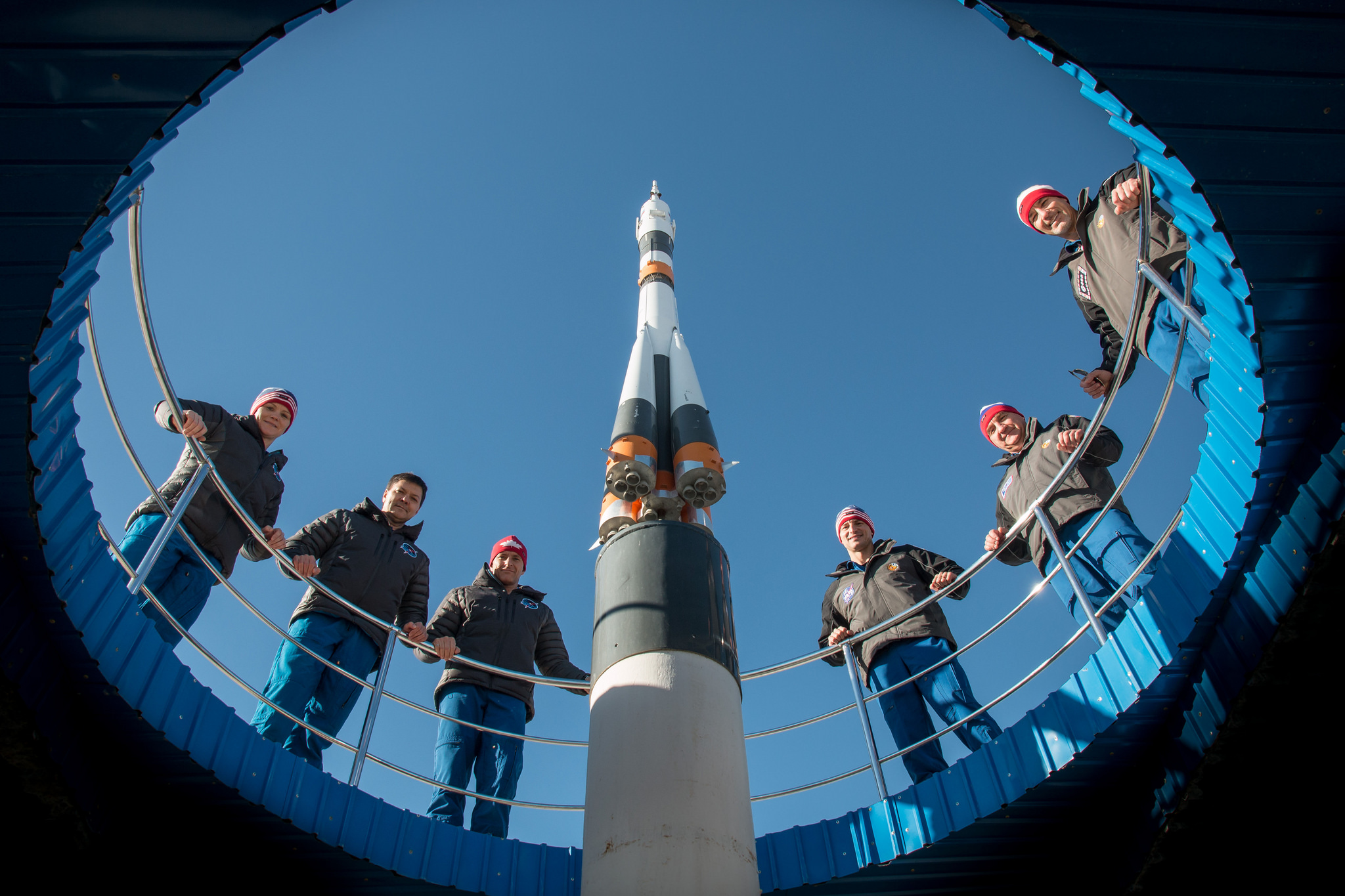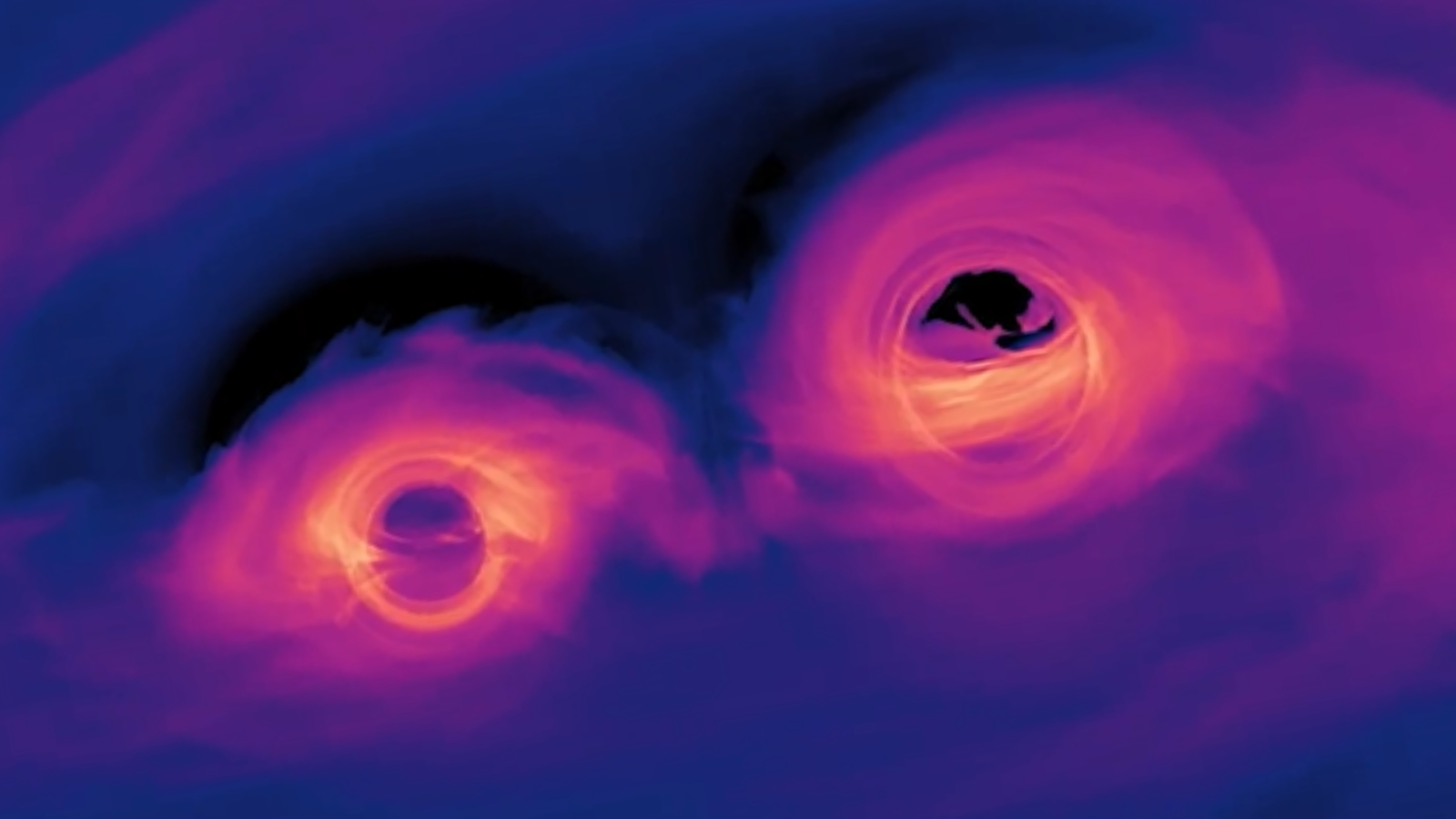NASA Astronauts Will Still Ride Russian Rockets After US Craft Arrive
Breaking space news, the latest updates on rocket launches, skywatching events and more!
You are now subscribed
Your newsletter sign-up was successful
Want to add more newsletters?

Delivered daily
Daily Newsletter
Breaking space news, the latest updates on rocket launches, skywatching events and more!

Once a month
Watch This Space
Sign up to our monthly entertainment newsletter to keep up with all our coverage of the latest sci-fi and space movies, tv shows, games and books.

Once a week
Night Sky This Week
Discover this week's must-see night sky events, moon phases, and stunning astrophotos. Sign up for our skywatching newsletter and explore the universe with us!

Twice a month
Strange New Words
Space.com's Sci-Fi Reader's Club. Read a sci-fi short story every month and join a virtual community of fellow science fiction fans!
While nothing has been signed officially yet, NASA does plan to continue flying its astronauts on the Russian Soyuz vehicle even after U.S. commercial crew vehicles come online, according to an agency spokesperson.
"Bill Gerstenmaier and senior NASA leadership have stated their intention to have U.S. crewmembers on Soyuz vehicles after 2019 and [to have] Russians on U.S. crew vehicles," Stephanie Schierholz, who works in public affairs at NASA Headquarters in Washington, told Space.com.
Gerstenmaier is the associate administrator for human exploration and operations for NASA, a position he has held since 2005. That post gives him immense influence on the use of the International Space Station (ISS) and the development of future human space programs. [Soyuz Launch Photos: Expedition 58 Crew Lifts Off for Space Station]
NASA has an agreement with Russia to fly crews on Soyuz through at least 2019, and some of those crewmembers are already announced. Rookie U.S. astronaut Anne McClain, who flew to the International Space Station on a Soyuz on Dec. 3, is slated to return to the station on a Soyuz in six months.
And on Feb. 28, the Expedition 59 crew launching on a Soyuz will include two Americans: Nick Hague and Christina Koch. Hague was one of the astronauts who experienced an abort on Expedition 57 in October, returning quickly to Earth after the failure; since his launch passed the accepted boundary for space, Expedition 59 will officially count as his second trip to space, while it will be Koch's first.
These new U.S. spaceflyers head for orbit at a time when NASA relies exclusively on Soyuz vehicles to send astronauts to space. NASA retired its space shuttle program in 2011 and has relied on Russian vehicles since then to go to the ISS.
For the most part, that arrangement has gone off without a hitch, with October's launch being the only disruption in crew rotations since Russia became NASA's sole provider of human launch services. (In comparison, NASA experienced a three-year disruption for operational ISS flights after the space shuttle fleet was grounded in 2003, following the fatal Columbia accident.)
Breaking space news, the latest updates on rocket launches, skywatching events and more!
NASA and two commercial crew providers, Boeing and SpaceX, are now close to bringing vehicles for crews online. SpaceX announced its first uncrewed test flight of the Dragon human spacecraft in 2019, and Boeing is expected to launch its own uncrewed flight sometime in the months following. Once these vehicles are certified for flight, astronauts will ride them to the ISS.
In August, NASA revealed nine U.S. astronauts who will fly on the first certification flights for Boeing's Starliner and SpaceX's Dragon. The post-certification flight crews have not been announced, but Schierholz said those flights will include crewmembers of from outside the U.S. — an inclusion that NASA fully expects will extend to Russians. NASA said these post-certification flights will be fully operational and will be regular, long-duration rotation missions, just like the missions facilitated by Soyuz today.
Schierholz added that having Russian and U.S. vehicles flying simultaneously will provide "redundancy in crew transportation" to the ISS. Additionally, flying both Americans and Russians on the two sets of vehicles makes sense given that the space station is made up of two distinct segments: a Russian side and a U.S. side, which includes several modules from other countries. Because these two segments are quite different, Schierholz said, operational requirements say that the best practice is to always have an American and a Russian working at the same time on the ISS.
"The intent is there will continue to be mixed crews on all vehicles that go to the space station," she said.
Follow us on Twitter @Spacedotcom and on Facebook. Original article on Space.com.

Elizabeth Howell (she/her), Ph.D., was a staff writer in the spaceflight channel between 2022 and 2024 specializing in Canadian space news. She was contributing writer for Space.com for 10 years from 2012 to 2024. Elizabeth's reporting includes multiple exclusives with the White House, leading world coverage about a lost-and-found space tomato on the International Space Station, witnessing five human spaceflight launches on two continents, flying parabolic, working inside a spacesuit, and participating in a simulated Mars mission. Her latest book, "Why Am I Taller?" (ECW Press, 2022) is co-written with astronaut Dave Williams.

